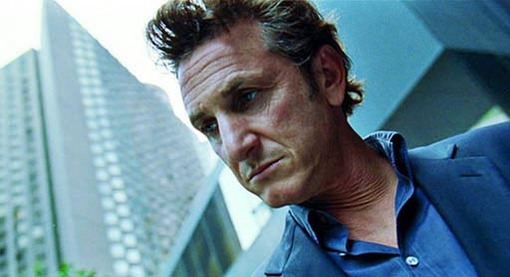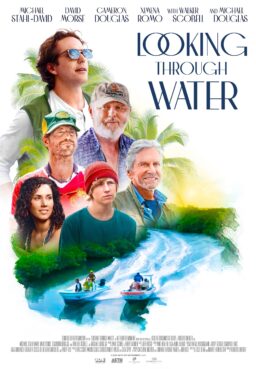You’ve probably read that Sean Penn, in an interview with Le Figaro, said this about working with Terrence Malick on “The Tree of Life“: “I didn’t at all find on the screen the emotion of the script, which is the most magnificent one that I’ve ever read. A clearer and more conventional narrative would have helped the film without, in my opinion, lessening its beauty and its impact. Frankly, I’m still trying to figure out what I’m doing there and what I was supposed to add in that context! What’s more, Terry himself never managed to explain it to me clearly.”
What you probably didn’t read was what else he said, which was translated and posted as a comment by Guy Lodge in response to an article at InContention.com headlined “Sean Penn bitch-slaps ‘Tree of Life’“: “But it’s a film I recommend, as long as you go in without any preconceived ideas. It’s up to each person to find their own personal, emotional or spiritual connection to it. Those that do generally emerge very moved.” (InContention.com followed up with “Penn on Malick, part deux.”)
Back in May, the great production designer Jack Fisk, who has known Malick for many years, told Dennis Lim in the New York Times: “I was shocked by how personal the story was when I first read it. But when I watched the film I just think how universal it is.” Or, as Richard Brody, who writes “The Front Row” for The New Yorker, aptly quotes Fritz Lang in Godard’s “Contempt“: “In the script it is written, and on the screen it’s pictures.”
Let this be a lesson to those who think reading a screenplay before seeing the movie doesn’t affect their perceptions and expectations. (Any movie critic who did something like that should be shunned.) Of course, Malick not only constantly re-writes his own screenplays during production and post-production, but re-works the films in the editing room for months and years. Brody says he thinks Penn is quite good in “Tree of Life,” adding: “I once read about a director who referred to an actor as the equivalent of a color on a painter’s palette. Penn brings an acid yellow to the glass-and-metal grays of his scenes, and it adds something important to the film; but he doesn’t get to do the kind of showy and theatrical performance for which Oscars are won.”
At the risk of getting into what Anne Thompson calls a “high-brow art debate,” (“Art is high! Don’t ‘bitch-slap’ me, bro!”) I’d like to point out that Penn and others said similar things about working with Malick on “The Thin Red Line,” which are documented in the DVD extras. Editors Billy Weber and Leslie Jones tell of how hard it was to get Malick to even watch the first, five-hour assembly of that film (he never watched it from beginning to end again), and how the footage they were getting focused increasingly on improvised or newly written scenes with James Caviezel‘s and Sean Penn’s characters. Indeed, that became the core of the movie, much to Adrien Brody’s disappointment when, in the finished film, he was demoted from the main character to a peripheral one. Richard Gere had a similar experience on “Days of Heaven.” Well, that’s the way Malick works, and Weber (who is also credited as an editor on “Days of Heaven” and “Tree of Life” — as well as “Top Gun” and “Days Of Thunder“) certainly knew that, even if the actors didn’t at the time. Given that Malick is said to be working on a six-hour version of “The Tree of Life,” perhaps we should give Penn the benefit of the doubt when he says that there’s a lot of narrative footage (“magnificent” and “emotional” or not) that we haven’t seen. Yet.
Me, I’m still in my third stage of “Tree of Life.” First there was Trying to Avoid Know Anything About It. Then there was Seeing It. For the last few weeks it’s been Reading Loads and Loads About It. Because no movie of 2011 has been more written-about than this one (and whether they’ve “liked” it or not, those who’ve written about it can’t even agree on what they’ve actually seen in it). The fourth stage will be Seeing It Again, but I don’t think I’m quite ready for that yet. I still have all this other stuff to process.
Some of the best pieces I’ve read about the film, including those by Bilge Ebiri (“I’m not sure ‘The Tree of Life’ is even all that complex, nor do I think it seeks complexity”), Matt Zoller Seitz (“… “The Tree of Life” is designed to elicit unique, personal responses in viewers, as unique and personal as what Malick is putting onscreen”) and Ignatiy Vishnevetsky (“… the film resembles an ancient artifact whose purpose can never be fully understood”), have emphasized both the specifically personal nature of Malick’s vision onscreen and the range of personal viewer responses and interpretations to which it leaves itself open. Surely Sean Penn is entitled to his own view at least as much as anybody else.











